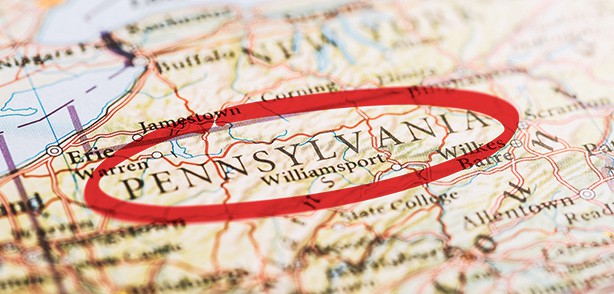Pennsylvania has a lot to offer, which may explain why it’s the
sixth most populous state in the United States, according to World Population Review. Among the Keystone State’s charms is its welcoming environment for entrepreneurs and small businesses. In fact, small businesses make up
99.6 percent of businesses in Pennsylvania and employ nearly half of the state’s workforce.
Businesses tend to thrive in areas that have a favorable economic climate, high quality of life, and a talented pool of laborers. Pennsylvania ranks highly among all these factors, in addition to a few other well-kept secrets that make the Keystone State worth exploring.
Why You Should Start Your Business in Pennsylvania:
1. Favorable Economics
Pennsylvania boasts the sixth largest economy and is home to 44 of the 1,000 biggest companies in the U.S., according to
Forbes’ Best States for Business.
Nationally-recognized brands such as Aramark, Comcast, and Rite Aid all call Pennsylvania home.
Forbes also reports that the cost of doing business in Pennsylvania is 5.8 percent below the national average, which may explain why so many businesses have migrated there.
2. High Quality of Life
Pennsylvania is conveniently located on the East Coast. It’s within driving distance of several major U.S. cities, including D.C., Boston, and
New York City, and much of the state is near the mountains and popular beaches.
In addition, it’s by far the most affordable state in the region. In 2018,
U.S. News & World Report ranked Pennsylvania 18
th in the country among affordability, the only New England or Mid-Atlantic state that ranked in the top 25.
The state’s low cost of living is primarily driven by its relatively affordable housing. According to the most recent
Best Places ranking, the median home price in Pennsylvania is $174,000 — nearly $46,000 less than the national average.

3. Impressive University System
According to the Pennsylvania Department of Community and Economic Development, nearly 250 public and private higher education institutions have set up shop in Pennsylvania, awarding approximately
194,000 credentials to Pennsylvania students annually.
The Department also reports that Pennsylvania is ranked second in the country in terms of net migration of students into the state for postsecondary education, and Pennsylvania ranks in the top 10 based on the number of adults with college degrees who are employed in high-level occupations.
Several top-tier universities, including the University of Pennsylvania, Carnegie Mellon, Villanova, and Lehigh, are in Pennsylvania. In addition, Penn State University boasts tens of thousands of graduates every year, and, University of Pennsylvania’s Wharton School is considered one of the top graduate business programs in the world. The state’s robust education system ensures that there’s no shortage of skilled and talented laborers in the workforce pipeline.
4. Accelerating Startup Activity
Although places like Silicon Valley and Austin, Texas are often hailed as meccas for innovation and tech startups, Pennsylvania is rising in the ranks for early-stage business activity.
In 2018, Fit Small Business ranked Pennsylvania fifth in the nation for startup activity based on the number of new businesses in the state, new business survivability, and likelihood of new business success.
In the same list, Pennsylvania came in second for access to capital based on the amount of venture capital funds and small business loans granted within the state. The Pennsylvania’s
Ben Franklin Technology Partners is one of the longest-running technology-based economic development programs in the nation and has provided early-stage businesses, tech-based firms, and established manufacturers with funding and other resources for more than 30 years.
5. Wide Variety of Industries
With its diverse economy, Pennsylvania offers opportunities for all types of business owners. Once known primarily for its manufacturing output (Bethlehem Steel was the nation’s second-largest steel producer and largest shipbuilder at one time), Pennsylvania’s largest industry is now broadcasting and telecommunications, which accounts for
5.8 percent of its GDP, according to 24/7 Wall Street.
While manufacturing still ranks among the state’s key industries, natural gas, agribusiness, tourism, life sciences, and plastics are all important contributors to Pennsylvania’s economy.
Conclusion: Consider Opening a Business in Pennsylvania!
If you’re considering moving your small business or are in the early stages of starting one, Pennsylvania may have the right combination of economic and quality-of-life characteristics to help you thrive.
For more information, check out this handy
beginner’s guide, which outlines everything you need to know for starting your business in Pennsylvania.

